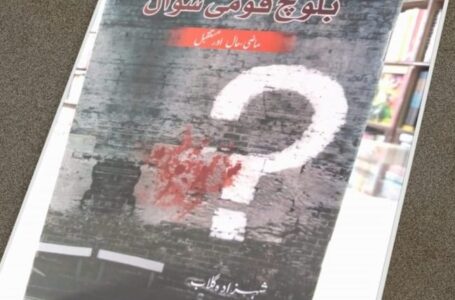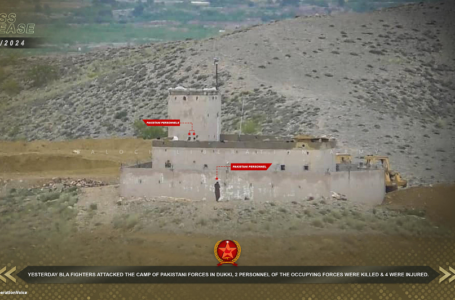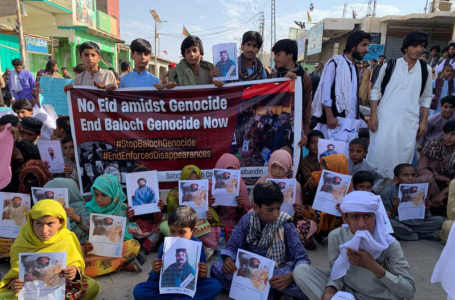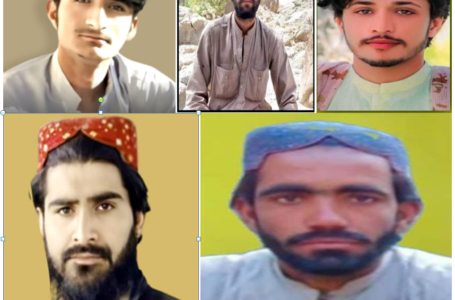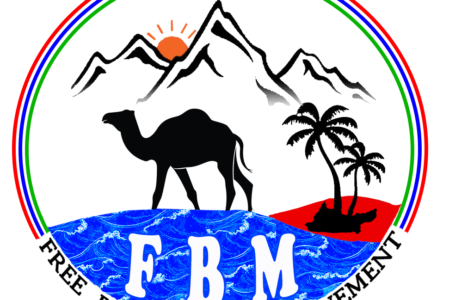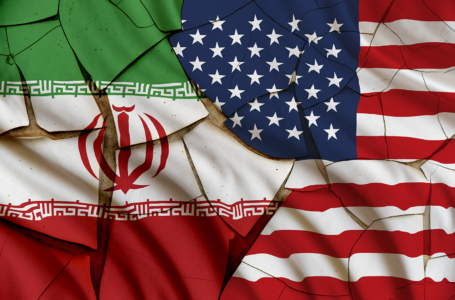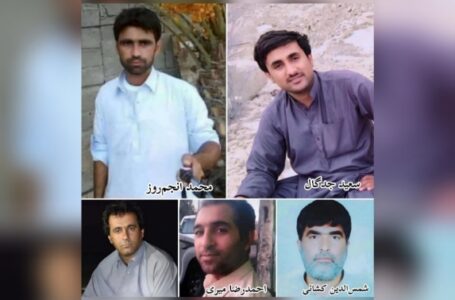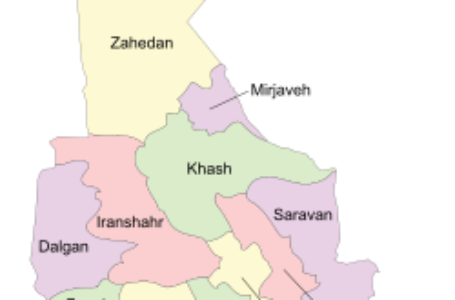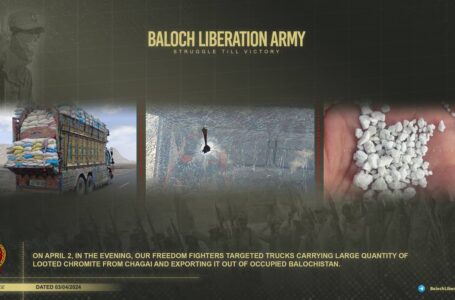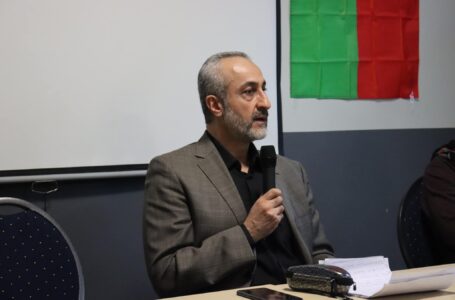Foreign countries should refrain from becoming Pakistan’s partner in Baloch Genocide: FBM
The Worst of all Possible Worlds
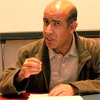
By Dr Shahzavar Karimzadi
In human history there are defining moments that have shaped our history. These momentous points are transitory passages that we tread from one stage to the next one. These transitions can be as result of natural phenomena or human actions. Mass earthquake to plaque, volcano eruption, tsunami, hurricane, epidemic disease and global change in weather can be the causes of natural disasters. With these changes human race have no choice but to adopt itself to the changing natural environment. But when natural conditions are apt for human existence then human species tend to proliferate. Either way, these events would generate defining moments for our species.
The focus of this article is on human actions that will create these defining moments. Technological inventions and scientific discoveries can be source of these momentous change. This aspect of human endeavours is not also our topic of discussion in this article. Our main concern here about socio-political and economic change. The periods of this kind that I have in mind are such as for example between 400-200 B.C. in ancient Greece, India and China. In more recent periods we find similar changes during the renaissance and the age of enlightenment. The post Second World War was yet another era that has profoundly shaped our history. It is the experience of the post war period that I will take as our reference to show much of the violence that has consumed the present-day autocratic and the theocratic states.
It can be argued that it is for first time that after the Second World War that we are witnessing a relatively genuine democratic movement that lays due emphasis on human rights; freedom of belief, thought and association, rights of self-preservation and determination, equal opportunity, economic protection and rule of law. These movements have led to formation of social-liberal democratic states in some parts of Europe and North America in particular and later on spread to some other parts of the world. The process of decolonisation after the war was, primarily, due to this phenomenon. The collapse of many military regimes in Europe, Asia, Africa and South America were also as result of this movement. The cause of the collapse of soviet empire was likewise due to this movement. Understandably, during these tense periods some nations acquired their democratic rights and some did not. In this latter category we have such prominent nations as Russia and China. But their time will come sooner or later.
One of this profound movement, in my view, is the Arab Spring. Christianity dominated middle ages. Every aspects of society in Christian dominated population was controlled by Christian theocracy. Christianity was the imperial ideology of powerful Christian kingdoms. This period is known as dark ages. The end of this period started with the age of enlightenment. If we take one century as our starting point for this movement that would be the seventeenth century. It was during this century and thereafter that authority of divine Christian laws; the authority of monarchs, the authority of ancient and sacred texts as the source of truths were seriously questioned. It was after this century that the rights of individuals and nations as equals are recognised. It was argued that every ordinary person has sufficient capacity to think and use his/her rational faculty in choosing their way of life without divine intervention and religious edicts. People were raised up as makers of their own history, as the maker of their own societies, economies, cultures, laws and values. Realization of these insights demanded a new earthy approach to life. If human race capable of determining their existence without intervention of any divine power then let them to be master of their own destiny. But to utilize such capabilities required new social, political, legal and cultural environment. The most fundamental prerequisites for a healthy environment of human beings to utilize their rational faculty are taking each person as an end and not as a means and let them employing such capabilities freely. The proponents of the age of enlightenment saw freedom and respect to human dignity as each person’s natural cardinal rights. In this sense all individuals are said to be equal. They have equal right of self-preservation, respect, dignity and freedom of using their faculty of reasoning. That is each individual has the ability to think and act rationally. But for each person to think and act rationally s/he must be free in the first place.
This thought broke the backbone of dark ages in northern Europe and North America. It was the application of this idea that has led to recognition of individual rights, freedom of thought, expression, belief, association and religion. It was the adherence to this principle that a demarcation line was drawn between science and beliefs. From this it followed that the functions of the state and religion are not the same. They are not just the same but they are poles apart. Religion and beliefs are said to be each person’s private concern and the state is subject to rational and scientific enquiry and reasoning.
On this account any form of dictatorship, torture, abuse of human rights, bigotry, forceful occupation and colonialism were rejected. Modern social liberal democratic nations are products of this process and mode of thought. The entire Middle East and wherever that is dominated by Muslim population have not yet experienced the same enlightenment period. For the last several centuries most of Muslim populated parts of the world have been experiencing a very stagnant, dark and violent period. Muslim empires fell and disintegrated and were colonised by European empires. So what has been left in these regions are some artificial geopolitical structures that created by European Empires and have, by and large, been approved by Muslim clergies.
The Arab Spring that started in 2010 is a critical landmark in the history of people in this part of the world and Muslim populated regions in other part of the world. One critical aspect of this movement was a display of ordinary masses’ dissatisfaction about the prevailing systems and their power as the source of change. What the masses wanted was freedom to live a dignified life. This is not the end of this movement. In fact it is its very beginning. The extent of brutality that we observe in the whole region is the legacy of colonial theocratic structures and the fundamentalist Islamic theocracy. Such political systems because of their very structures are very violent and extremist. Colonialism and theocracy is a very toxic combination. All the autocratic and theocratic states in this region are product of this toxic combination. At the pinnacle of such systems stand the Islamic states of Iran, Pakistan, Taliban of Afghanistan, the Islamic State of Iraq and the Levant and their affiliated groups. Despites their affiliation to one sect of Islam or another their deeds have been exactly the same. They share exactly the same core principles. People in their assessment are merely the means to protect their colonial theocratic geopolitical structure. The rulers of these states and their advocates take pride in irrationality, cruelty and bigotry. They universally detest freedom and democratic values and take pleasure in killing and torturing anyone who does not fit in their narrow Islamic trajectory.
Rivers of the young, old, men and women that we are observing now who are heading towards the democratic west from this region says it all. It is due to the respect to human dignity, freedom, rationalism and security that draw these people to the democratic west. These waves of enforced migration and brain drain are signs of people being fed up of the old colonial theocratic world that has dominated this region for many decades. But the root cause of the very predicament in this region has not fully and satisfactorily been explored yet. The root cause is the prevailing colonial theocratic geopolitical structure. These geopolitical structures are neither humane nor democratic nor rational or efficient. So if you want to have a secular and democratic state that respect human rights, freedom of expression and association, equality of gender and equal opportunity and rule of law, these prerequisites cannot be fulfilled in such geopolitical structures. Such principles are inherently at odd with such geopolitical structures. These geopolitical structures are inherently undemocratic, militaristic, violent and extremists.
Archetypal of such political structures as we have stated earlier are the modern states of Iran and Pakistan. Modern Iran was formed in 1920s. In military coup d’état Reza Khan Mir-Panj ended the Qajar dynasty in the first half of 1920s. The Persian dictator then extended his political power by occupying a segment of Turkmenistan, Azerbaijan, Kurdistan, Arabisation (Al-Ahwaz) and in 1928 he occupied western Balochistan. Reza Khan Mir Panj made himself the king of Persia in 1925 and consolidated his political and military power by 1930. In 1934 the Persian ruling establishment opted for ‘Iran’ as substitute for Persia. On 21 March 1935 this name became the official name of the Persian colonial construction. But the change of name did not alter the ground reality. Iran has remained synonymous with Persia and Persian colonialism. His son, Mohammad Reza, issued a decree in 1959 declaring that Iran means Persia.
Persian colonialism headed by Reza Khan took a contemporary form. Unlike previous types of Persian colonialism over their colonised nations, this time the Persian ruling class went for total annihilation of their subjugated nations. In his colonial eugenic ethnic cleansing craze, Reza Khan was influenced by two terrible political trends at the time. His sources of inspiration to homogenise everyone to one nation i.e. the Persian nation came from Kemal’s Turkey and German fascist ideology. Iran is in reference to the Aryan race. This was mimicking Nazis notion of pure race. The main reason that the Islamic regime of Iran was followed by the end of Pahlavi was due to this colonial geopolitical structure. From mid 1970s Mohammad Reza’s regime tried to implement some political and economic reforms and allow greater individual and political freedom but he failed miserably because in order to restore this artificial colonial geopolitical construction one needs extreme violence and religious bigotry. In contrast, the Islamic regime has been considerably more brutal, corrupt and extremists precisely because they wanted to preserve this colonial theocratic geopolitical structure and to turn the clock backward. The incomparable Islamic regime’s violence and cruelty soon after coming to power was to counter the masses’ demand for freedom, democracy and justice during the 1979 revolution. Respecting such demands simply meant the end of Iran’s colonial structure.
Arguably, one of the worst legacies of the British Empire was forging the Frankenstein state of Pakistan. Formation of Pakistan was and is the worst of the all possible worlds. The idea of Pakistan was the reverberation of modern day Taliban, ISIl, Hezbollah on one hand and on the other the old Indian cast system and European fascism. Punjabi Muslim elites who served British Empire so devotedly wanted greater power in the Indian Raj. To achieve this aim they came up with excuses that were acceptable to the British rulers of India. What Indian Punjabi Muslims wanted was divisive and worked effectively against progressive Indian who wanted to get rid of British colonialism in India. On the contrary, the desire of progressive Indian Muslims was the same as other progressive Indians.
If we remove the first layer of the surface of the concept of Pakistan then we can see beneath it the intention and the much anticipated consequences of this concept. We can see its true meaning. The term, in effect, is a derivation of the Indian cast system. Therefore, at its very core it has a racist, xenophobic and fundamentalist origin. The term was coined by Chaudhry Rahmat Ali at Cambridge in mid 1930s. Mr Chaudhry was a fanatical Punjabi Muslim who simply hated his fellow compatriot Indian Hindus. Coming from Punjabi Muslim elite background who have never broke from their ancestral cultural inheritance, he glossed this dreadful cultural practice with Islamic veneer. The best reflection of this disposition is in the concept of Pakistan. The term roughly means ‘the land of the clean and pure race.’ But Chaudhary put more emphasis on the notion of ‘purity’ of the meaning of the term. Either way, the term divides the Indian population as the clean and unclean ones. The clean being the Indian Muslims and unclean the rest of the Indian population.
Besides, if we examine the term in its historical context then the true meaning of the term becomes much clearer. It was coined at the height of the fascist upsurge in Europe. At this time fundamentalist Muslims were close allies of fascist ideology. They shared the same views. Furthermore, these groups of Indian Muslim were also craved for a pure Islamic state similar to that of Islamic regime of Iran, Taliban and ISIL. Accidently, Indian Punjabi Muslims’ wish was materialised in 1947. Since then they have done whatever was expected from this kind of political creed.
From the day of its creation, Pakistan has never been free of bloodshed, corruption and religious bigotry. The Punjabi army (Pak army – the clean army) does not seem to recognise any boundary to its atrocities. During the partition of India, over 15 million people were displaced, 1.5 million of them were killed. Thousands of people died in the three wars with India that were initiated by the Punjabi Muslim army. The Bengali war of independence was another catastrophe that was instigated by the same army. Punjabi army celebrated its mass killing of about 1.5 million of Bengali population, displacing about 8 million of them and raping about half million of Bengali women. They committed all these atrocities within a period of nine months. Punjabi army has continuously been killing the progressive political leaders and political activists of Sindh and the Pashtun. They have carried out five major military operations in Balochistan. Not just that they tested their nuclear bombs in Balochistan too. They formed numerous Jihadist groups and have been sponsoring most of Islamo-fascist groups in Afghanistan. Due to their colonial rule there is very little left of the social, economic, political, legal and cultural fabric of Baloch, Sindhi and Pashtuns. Worldwide, there is not a jihadist group that has no some kind of connection to this theocratic mafia organisation. All these and many more have been taken place since 1947. Sadly, this is not the end of Punjabi Muslim colonialism and hence their ongoing atrocities. Their conducts will be the same as long as this colonial theocratic geopolitical construction is maintained.
The conditions of these political structures is such that no one is safe. No one wishes to stay in these geopolitical structures. One thing the rulers of these colonial structures do first is sending their children, close relatives and their cronies to western democratic nations. This is because the rulers and proponents of these states do not trust their own system. They know perfectly well that these colonial systems are neither moral, efficient, reliable nor durable. The fact is in Pakistan the ruling establishment are Punjabi Muslims and in Iran it is the Persian. But neither Pakistan nor Iran belongs to the vast majority of Punjabis and Persian public respectively. The vast majority of Punjabis and Persian, given the chance, would choose to live in a safe, prosperous and democratic political formation.
One thing that is as clear as day light is that these colonial geopolitical structures belong to a relatively small fraction of Punjabi Muslims and Persian. They are the ruling establishments that comprise the armies, security forces, the elites of political and legal administration, the ruling clergies, the business class and the land-owning class who cooperate with the ruling establishment. These are the people who want present colonial geopolitical structures being preserved. For the rest of population be it from the subjugated nations or the dominant nations these designates are hollow and meaningless. What they want is to live in a safe and free environment where their dignity is respected and there is a reasonable level of economic security. The only way to achieve this aim is by means of a democratic government and that means the end of these theocratic Frankenstein states.
There must be a time when we can live in peace with our neighbours. Basically, abduction; imprisonment, torture, killing and destruction cannot go forever. These horrific actions would not be acceptable for all sides permanently. The ruling establishments, however, would not forgo the privileges that they have. These are such privileges that they try to equate to national integrity and to the interest of the dominant nations. Having said that, the ruling establishment keep changing. The Pahlavi dynasty ruling establishment is not the same as the present-day Shiite ruling clergy of Iran. In case of Pakistan the Punjabi army total control is not the same to the so called the civil governments of Pakistan. Although they all stand in the pulpit of national integrity and give legitimacy to their power, in the end it is their economic and political privileges that rule the roost. This is one of the most important aspects of these states that Baloch liberation movement has not grasped fully.
Baloch liberation movement suffers from a number of shortcomings. Some of these shortcomings are inevitable due to the nature of the movement and the conditions which are beyond Baloch control. In spite of all its weaknesses, Baloch have taken big strides in their national democratic movement. Among these steps two stands above all. The first one was in 1970s after Pakistan dismissed the state of Balochistan. Baloch, in the main, got united and targeted their war against the true enemy of Baloch freedom. So long as they followed this target their success was consistent and very effective. But this movement lacked a clear vision and plan about the future of Balochistan. As result of these dynamics and so many other factors that were outside control of Baloch people the movement had experienced a cycle of decline but it did not fail. The pause was largely due to the fact that many Baloch leaders did not rely on Baloch and went for consolation to the Pakistani establishment in general and Punjabi establishment in particular. Some went towards the Pakistani left, some to their religious groups and some to Punjabi army. All these vested interests did not want Baloch to acquire their democratic rights as they do not want Baloch to get their rights at this time. They might present themselves with attractive titles as defender of human rights, guardian of working class and so on but that does not make much difference if you believe in idea of Pakistan or Iran. The concepts of Pakistan and Iran precede and determine their worldview and the rest will follow thereafter. The intention of these groups is shrouded in a pretended narrative that to the uninformed mind can be attractive. But in the long run the damage that these groups inflict is not much less than the damage Punjabi and Persian security forces have inflicted on Baloch liberation movement.
The 1970s Baloch liberation movement did not fail partly because of strong desire of Baloch people for freedom and independence but partly because of contribution of the late Khair Baksh Marri and his likeminded Baloch political leaders. The second period was from 2002 to 2009. Again Baloch seemed to have a clear target and tried to rely on themselves. The achievements of this period are very extensive but much short of full victory. During this period one cannot dismiss the contribution of the late Akbar Bugti. So long as Baloch relied on themselves and tried to highlight their own mistakes and learn from them the movement kept progressing but after imprisonment and killing of many prominent Baloch leaders, many Baloch instead of relying on themselves turned their direction towards Pakistani and Punjabis groups and individuals. For that they have paid a heavy price in terms of their members being identified and being killed.
This time the movement, however, is full of potential. Provided that this potential is directed in the right direction, then it will acquire the momentum that no colonial state will be able to control or destroy. The sooner the progressive Baloch political parties and independent individuals get united on shared principles i.e. the Balochistan Liberation Charter and then write the provisional constitution of Balochistan, the bigger step they will take for the Baloch movement to succeed and the closer they will get to their ultimate goal. The colonial theocratic states of Pakistan and Iran are not here to stay forever. Their presence is transitory. The process of transition in contemporary world is much faster than any time in human history. They are already burning in the flame of their utter failures to the public demands. These states will perish sooner than we envisage precisely because these states are undemocratic and inhumane.

